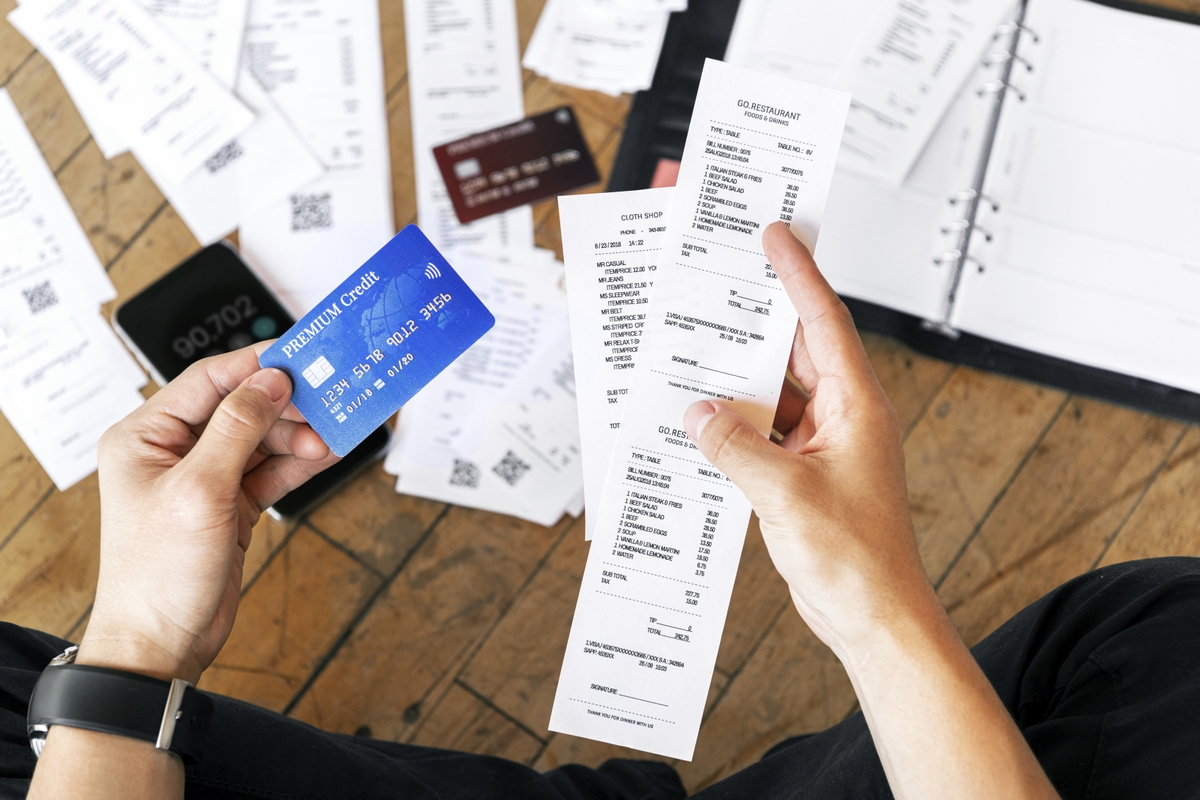Not paying off credit card bills on time can sometimes prompt car lenders to repossess a car despite timely car loan payments.
Imagine waking up, ready to go about your daily chores, only to see your car being towed away since you missed paying your bills on time. Sounds like a nightmare doesn’t it? Sadly it is a reality that many people have experienced due to missing their credit card payments, which caused them to go into debt.
Indeed, not paying off your credit card payments on time can put you into credit card debt. That will have further negative consequences on your finances, like a decrease in credit score, persistent collection calls, and possible legal action. If you have an active car loan, your lender can even repossess your car. But there are certain caveats to that.
In this post you will learn how having unpaid credit card bills can lead to car repossession.
The Connection Between Credit and Car Ownership
Payment history is one of the main factors that impact credit scores. So, everyone must pay their bills on time, including dues that do not appear on credit reports. Unpaid or late payments go into collections- that can trigger a drop in credit score.
In terms of car loans specifically, credit scores can directly affect interest rates and car loan approvals. Individuals with higher credit scores are eligible for car loans with lower rates. A bad credit score can have the opposite effect. Lenders might offer you loans with high interest rates or unfavorable loan terms. They might even reject the application entirely.
Now, a person struggling with credit card payments will likely have the same problem with paying their car loans on time. Missing these payments can prompt your car lender to repossess the car to recover the owed amount.
In case of old or forgotten credit card payments, though, the credit card issuer can report the delinquency to the credit bureaus. That will reduce credit scores and harm financial stability. If you try to get a new loan after this, you might not qualify for good car loan offers. But can you lose your car just through missing credit card payments when you did not miss car loan payments?
The answer is yes but only in specific situations. In general, car lenders do not repossess cars for missing other debt payments like credit card bills. This is because there are multiple legalities in place, like the court approving the repossession in lieu of debt repayment. Besides that, taking away the car may cause the debtor to lose their job. Then they will become less likely to repay their debt, which will be a loss for the lenders themselves. Other assets like bank accounts, houses, or wages are more favorable to target for repayment compared to a car.
Understanding How Credit Card Debt Can Trigger Car Repossession – Potential Reasons
Here are the possible situations where car lenders may repossess the vehicle if their debtor has unpaid or forgotten credit card payments.
- Reduction in credit score– Missing credit card payments can lead the credit card issue to report it to the credit bureaus. Then the debtor will likely see a significant decrease in their credit score. In the context of car loans, lenders may sometimes monitor the financial behavior and credit scores of their debtors. Seeing a reduction of your credit score may spook the lenders. They may decide to repossess the car or disapprove a car loan for you.
- Cross-default clause- Some car lenders may have a cross-default clause on the car loan agreement. As per this rule, defaulting on one debt (e.g., credit card debt) can prompt the car lender to consider you in default on another debt (e.g., a car loan). This is even if you pay car loan payments on time.
- Collateral repossession- In case of missing payments on a secured credit card, the issuer can repossess the collateral. If your car was the collateral here, the issuer can repossess it in case of missed payments.
Impact of Going Carless Due to Missed Credit Card Payments
Most people assume that missing credit card payments once or twice may not impact them heavily, especially with other dues. But in reality, it can occur that one might lose their car after ignoring their credit card payment deadlines. Reportedly, April Washington of Massachusetts experienced such a situation in August 2021, when the court allowed her creditor to repossess her Ford truck against her $1,200 credit card debt.
The situation brought unnecessary stress to Washington, both financially and psychologically. The following are some of the negative ways this can impact you if you go through a similar situation:
- Losing your car can cause overwhelming stress about future finances and hinder the daily activities that you would typically handle using a car.
- Uncertainty about your financial situation can add more tension to your guilt/shame about not managing your debt correctly.
- It can increase your daily public transport costs, thereby disrupting your monthly budget.
- Financial trouble can create a tense environment in your home or with your acquaintances.
- The repossession of your car will come with added fees, which will increase your total owed amount.
- Repossession will decrease your credit score; it will become difficult to apply for new loans in the future.
Thus, individuals need to take intentional steps to improve their financial condition and eliminate their debt quickly.
Tips to Prevent Losing Your Car to Credit Card Debt
There are certain steps you can take to avoid car repossession due to missing credit repayments or to improve your financial situation afterward.
Set up automatic payments

You can use a financial management tool to keep track of all your accounts via a single platform. Plus, set up automatic payments and reminders for on-time payments.
Review your credit report
Build a habit of reviewing your credit reports frequently. This way, you will be able to check if there are any unpaid bills or forgotten credit accounts. In case of erroneous entries (like the report showing a loan as active that you have already closed), contact the credit bureau.
Handle negotiations
You can contact your credit card issuer directly about the forgotten credit card bill and negotiate a modified repayment plan. For example, you can adopt a debt consolidation program or engage with credit counselors to prepare a personalized debt management plan for fast credit card debt relief.
Be transparent about your situation to earn trust of your creditor. You can get the help of professional debt settlement experts or credit counselors for this step since handling the negotiations on your own can get complex.
Apply for professional financial advice
You can consult with credit counselors or financial advisors for advice and support about your case. They can suggest the right course of action for your situation, help with the negotiation process, and assist you in achieving financial stability.
Conclusion
Not paying off credit card bills on time can sometimes prompt car lenders to repossess a car despite timely car loan payments. While this is not a common occurrence, there are certain conditions where it can apply. So, you should take proper steps to quickly repay your credit card debt to prevent such a situation, like adopting debt relief strategies like debt consolidation.
Besides that, adopt healthy financial habits like using budgeting apps frequently. Use credit monitoring sites to keep track of your active and inactive credit accounts. With proper steps and staying consistent in your efforts, you can improve your financial health and avoid losing your assets, like a car, due to past debt mistakes.


Join the conversation!